 Petzlover
PetzloverPersian is originated from Iran but Torby is originated from United States. Both Persian and Torby are having almost same weight. Persian may live 6 years less than Torby. Both Persian and Torby has same litter size. Both Persian and Torby requires Moderate Maintenance.
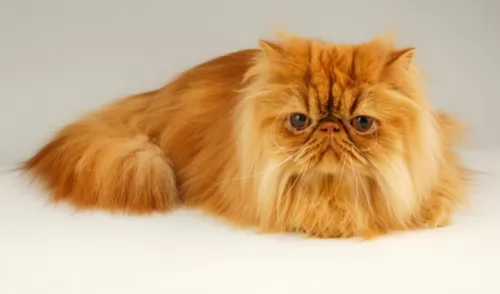 Cat lovers the world over know the Persian cat very well. It's a beautiful long-haired cat breed with its familiar round face and blunt muzzle.
Cat lovers the world over know the Persian cat very well. It's a beautiful long-haired cat breed with its familiar round face and blunt muzzle.
It is not really known when long-haired cats first appeared, or where the Persian originated but their history stems from Persia or Iran as it is known today, where it seems they were first sighted.
The cats were grey-coated and some were white and soon the cats arrived in Britain. They were introduced to the United States in the 1900s. The cat was developed first by the English, and then also by American breeders after the Second World War and the breeding of these cats has also meant a lot of coat colors.
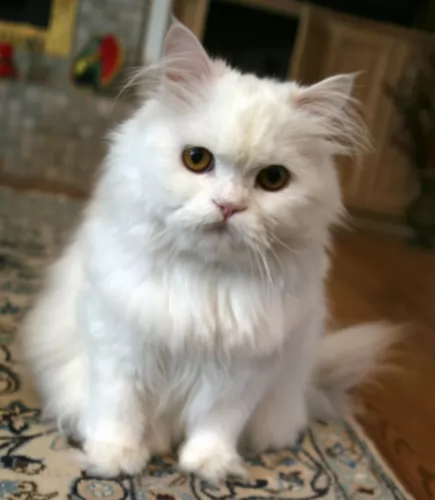 The Persian cat is a medium- to large-sized cat and is heavily boned. He can weigh between 3 and 6kg.
The Persian cat is a medium- to large-sized cat and is heavily boned. He can weigh between 3 and 6kg.
He has stocky legs, a thick neck, small ears, round head, round eyes, and the face is flat or blunt. The kittens are gorgeous balls of fluff.
The coat of the Persian is thick, long, and silky. People many times think only of a white Persian, when in fact the cat comes in many colors and patterns. Eye color for the cat can be blue, green, brown, copper or even odd-eyed.
The Persian isn’t the most active of cats, so attention will need to be given to exercising the cat so as to manage his weight. This cat will also need to have his nutrition controlled to stay in shape and in good health.
Persians enjoy games with their human family and will need some toys to encourage play and exercise.
He is placid and calm but that doesn’t mean he can’t have bursts of energy. They’re quieter than other cats, are sweet-natured, preferring to live in quieter, less boisterous households.
They aren’t loudly vocal but communicate with their eyes and their soft voices. They won’t get on well with small, noisy children but can be loving pets and companions of older children who allow them their own space.
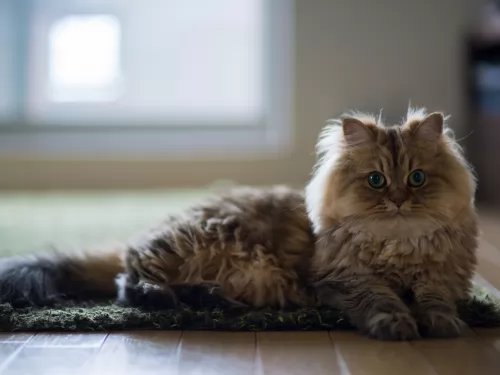 The amicable personality of the Persian cat makes it easy to have these cats in your home. The long hair becomes a bit of an issue as the cat sheds quite a bit.
The amicable personality of the Persian cat makes it easy to have these cats in your home. The long hair becomes a bit of an issue as the cat sheds quite a bit.
They’re sweet, quiet cats and they don’t demand attention from you. They are more than happy just lying quietly in a warm spot. They are calm, loving cats and it's no wonder that they are still such a popular breed of cat.
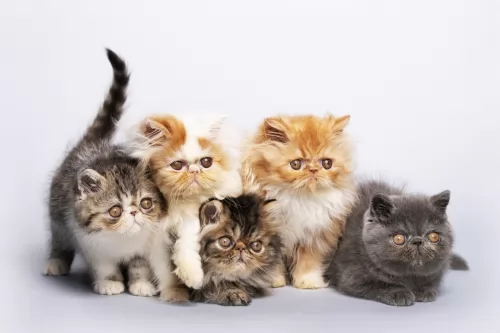 The structure of this cat’s head can mean some health problems. Hereditary Polycystic kidney disease is prevalent with the Persian cat. It is an inherited condition that causes cysts to form in the kidneys. These cysts are actually present from birth, growing larger over time and interfering with kidney function and ending in kidney failure.
The structure of this cat’s head can mean some health problems. Hereditary Polycystic kidney disease is prevalent with the Persian cat. It is an inherited condition that causes cysts to form in the kidneys. These cysts are actually present from birth, growing larger over time and interfering with kidney function and ending in kidney failure.
Also, with a larger breed cat such as the Persian, hip dysplasia is a problem.
Persians are also susceptible to malocclusion which means ‘incorrect bite’. This particular condition can affect the cat’s ability to grasp and actually hold food. So much so in fact, that now pet food manufacturing companies have even developed specially-shaped kibble to cater particularly for the Persian.
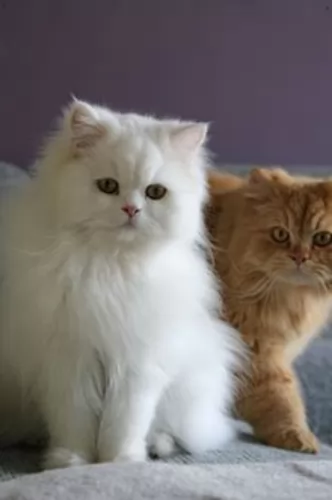 The Persian cat’s coat is long and silky and because he is a fairly heavy shedder, he will require regular brushing – certainly once or twice a week to get rid of that loose hair. It is important to brush and also cut the hair so as to get rid of the tangled knots that form.
The Persian cat’s coat is long and silky and because he is a fairly heavy shedder, he will require regular brushing – certainly once or twice a week to get rid of that loose hair. It is important to brush and also cut the hair so as to get rid of the tangled knots that form.
While brushing your Persian, make sure that his eyes and nose are clear. This is important because the flat face creates problems with these cats.
Excellent cat food for your Persian involves reading labels and understanding what brands are best for your beautiful cat. The Persian cat is a carnivore and will require high-quality food rich in protein.
Speak to your vet if you are in any doubt about the best food for your cat’s health and wellbeing. Make sure your pet has a constant supply of fresh, cool water.
Make sure to keep the litter box clean. Buy a small rake from the pet shop and rake up your cat's feces every single day and dispose of them.